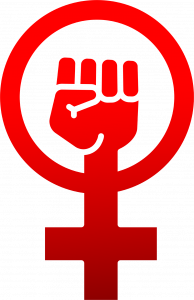FDA’s Groundbreaking Approval of Veozah Ushers in a New Era of Relief for Menopausal Women
###
In a monumental stride toward elevating women’s health, the U.S. Food and Drug Administration (FDA) has bestowed its imprimatur on Veozah, an innovative oral medication engineered to alleviate the scourge of moderate to severe hot flashes that besiege women in the throes of menopause. Not just another entry into the pharmacopeia, Veozah is the first neurokinin 3 (NK3) receptor antagonist to gain FDA approval for this specific symptom, signifying a sea change in how society addresses women’s midlife transitions.
“Menopausal hot flashes aren’t just an inconvenience; they’re a debilitating affliction that can sabotage a woman’s quality of life,” opined Janet Maynard, M.D., M.H.S., who helms the Office of Rare Diseases, Pediatrics, Urologic and Reproductive Medicine at the FDA’s Center for Drug Evaluation and Research. “The advent of Veozah augments the therapeutic arsenal available to women, offering a robust and safe alternative.”
Colloquially dubbed “the change of life,” menopause typically descends upon women between 45 and 55, signifying the end of their menstrual cycles and the waning of the hormones estrogen and progesterone. This biological rite of passage can unleash a fusillade of hot flashes in approximately 80% of women, marked by transient but intense periods of sweating, flushing, and chills.
Especially noteworthy is Veozah’s non-hormonal mechanism, which zeros in on neural activity as the culprit behind hot flashes. This offers a new lifeline for women whose hormone therapies are contraindicated due to a history of vaginal bleeding, stroke, heart attack, blood clots, or liver disease.
Veozah’s regimen is straightforward: a single 45-milligram pill, consumed orally once daily—food or no food—ideally at a consistent time. The guidance for any missed dose is simple: take it as soon as possible and resume the regular schedule the following day.
Veozah underwent two rigorous, randomized, placebo-controlled, double-blind Phase 3 clinical trials, each spanning 52 weeks to vouch for its efficacy. The results were unambiguous: Veozah significantly mitigated hot flashes during the initial 12-week assessment phase. Subsequently, the trials included a 40-week extension study to further scrutinize its safety profile.
Patients should note that Veozah comes with caveats. It carries a warning for potential liver injury, requiring periodic blood tests for the first nine months of treatment. Furthermore, Veozah is incompatible with certain medications like CYP1A2 inhibitors, and should not be prescribed to patients with known cirrhosis, severe renal damage, or end-stage renal disease.
As for side effects, patients may experience a range of symptoms, from abdominal pain and diarrhea to insomnia and elevated hepatic transaminases. But for countless women struggling with the unrelenting heat of menopausal symptoms, the FDA’s Priority Review designation and subsequent approval of Veozah marks nothing less than a watershed moment, a harbinger of cooler, more comfortable days ahead.
The triumphant Veozah saga culminates in a victory for Astellas Pharma US, Inc., the pharmaceutical giant to which this groundbreaking approval was granted. Thus, as Veozah prepares to make its debut on pharmacy shelves, it heralds not just a new drug, but a new dawn for women navigating the turbulent waters of menopause.










